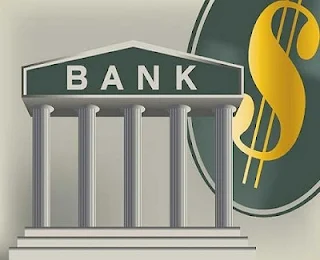Types or Kinds of Banks
There are various kinds of banks in present age. Every has different features. Following are the main classes of banks :1. Central Bank :-
All the banking structure of any country revolves around it. It has the monopoly of note issue. It is a financial advisor of the Govt. It is a bankers bank. Monetary and credit system is also controlled by the central bank. It is very helpful in the utilization of the resources of the country for the productive purposes.2. Commercial Banks :-
These are profit seeking in situations. These accept the deposits and provide, short term, medium term and long term loans. These also perform the agency and utility services demanded by the people.3. Exchange Banks :-
These banks deal with the foreign exchange. These banks finance foreign trade. These banks are also performing a general banking functions with the foreign exchange business. In developing countries commercial banks have established the exchange department in their main branches.4. Industrial banks :-
These banks provide loans medium term and long term credit only to the industrial sector. Commercial banks only provide loan for short term and only for the working capital. While industrial banks provide loan for the fixed capital. In the western countries there are a large number of industrial banks.5. Agricultural Banks :-
The banks which provide loan to the agricultural sector are called agricultural banks. These banks provide credit facilities to the rural sector of the economy.6. Investment Banks :-
The main functions of these banks are the merchandising of shares bonds and securities.
7. Saving Banks :-
In real sense saving banks are not banks. They only provide saving facilities and encourage the savers. Saving banks usually invest their funds in Govt. securities.IMPORTANCE OF THE BANKS :-
Bankers play very important role in the economic life of the nation. The health of the economy is closely related to the soundness of its banking system. Although banks create no new wealth but their borrowing, lending and related activities facilitate the process of the production, distribution, exchange and consumption of wealth. In this way they become very effective partners in the process of economic development. Today modern banks are very useful for the utilization of the resources of the country. The banks are mobilizing the savings of the people investment purposes. The savings are encouraged and saving rate increases. If there would be no banks then a great portion of a capital of the country would remain idle. In the less developing countries rate of saving is very low and due to this rate of investment and rate of economic growth remains very low.A bank as a matter of fact is just like a heart in the economic structure and the capital provided by it is like blood in it. As long as blood is in circulation the organs will remain sound and healthy. If the blood is not supplied to any organ then the part would become useless. So if the finance is not provided to agricultural sector or industrial sector it will be destroyed. Loan facility provided by banks works as an incentive to the producer to increase the production.Manufacturers and merchants expand their business knowing that they can rely upon banks for financial help. Bank provide transfer of payment facility which is cheaper, quicker and safe. Many difficulties in the international payments have been over come and volume of transactions have been increased. Cheques, drafts, bill of exchange and letter of credit are very important instruments of the banks. The banks collect these instruments drawn on banks in other cities or countries and proceeds according to the accounts of the customers concerned. This facility is very helpful for the development of trade and commerce. Moreover it saves a lot of labour time and money of the traders and other people. Banks also finance and expand international commercial transactions. In developing countries commercial banks are playing very effective role for the development of industrial and agriculture sector.









0 Comments